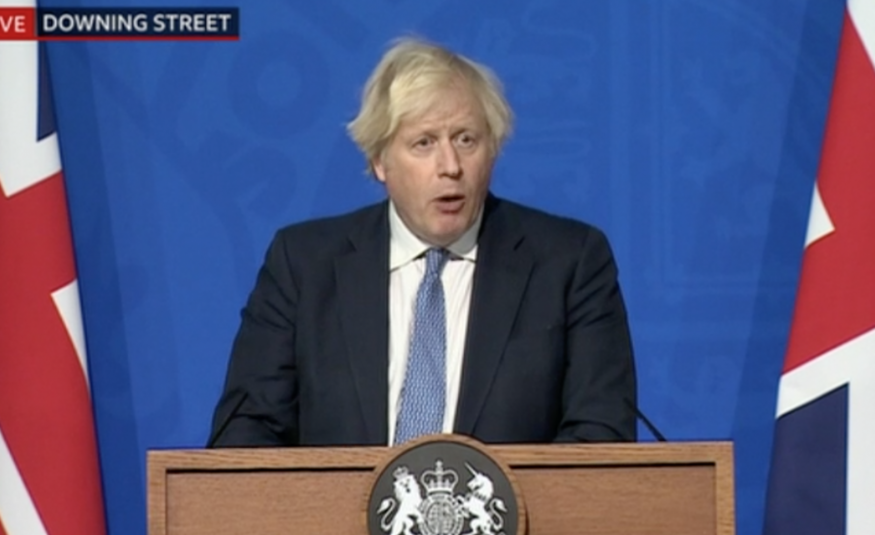UK prime minister Boris Johnson has confirmed that the Government’s ‘Plan B’ is to be introduced in England in an attempt to slow down the spread of the new Omicron Covid-19 variant.
Speaking from Downing Street, 8 December, prime minister Johnson confirmed that, from 13 December, people are advised to work from home if they can, and that proof of vaccination would be required to gain entry to what he described as ‘large events’.
There is no mandate to cancel events.
He said: “We will also make the NHS Covid pass mandatory for entry into nightclubs and venues where large crowds gather, including unseated indoor venues with more than 500 people, and seated outdoor venues with more than 4,000 people and any venue with more than 10,000 people.”
A negative lateral flow test will also be an acceptable form of Covid status certification, alongside proof of vaccination.
The prime minister also confirmed that the wearing of face coverings indoors would once again become mandatory, including for those attending indoor events. “From this Friday [10 December] we will further extend the legal requirement to wear face masks in public indoor venues, including theatres and cinemas,” he said.
On Christmas parties, Johnson said they may go ahead but employers should encourage caution.
Industry response
Simon Hughes, chair of the Business Visits and Events Partnership (BVEP), which is the UK events industry’s umbrella body representing various trade associations, told CMW UK sister publication Conference News that there was “plenty of evidence” that the uncertainty around the impact of Omicron has already led to a wave of cancellations and postponements across the UK. He said: “Changes to the working from home guidance will inevitably reduce business travel and attendance at events.”
However, Hughes added that the traditionally risk averse events industry was already operating under Plan B requirements, with many venues already insisting on proof of vaccination or negative test already, with mask wearing broadly encouraged.
“The vast majority of organised events already operate under the Plan B requirements, requiring vaccine certificates to be shown on entry,” he said.
“The events industry is generally supportive of the introduction of Covid Passes but would like to see pre-event testing also part of any regulation.”
Hughes added that ONS research conducted at the time of Events Research Programme earlier in 2021 indicated that 15% more people were likely to attend an event where Covid certification was in place.
“The events industry operates sophisticated ticketing and pre-registration systems and is able to manage, and in some case merge, the Covid Pass with existing entry procedures.
“Some sectors of the events industry are not keen on seeing the introduction of Covid passports, but all sectors have been engaged with officials to ensure that the guidance in place for Plan B is based on our risk management expertise as well as the lessons learnt during the pandemic.”
‘Devastating impact’
Kerrin MacPhie, chief executive of the Meetings Industry Association (mia) said that the Omicron variant and the announcement that followed will have a “devastating impact on business meetings and events”.
“Based on the latest scientific data we understand that the Plan B restrictions will need to be put in place, to help reduce the transmission of the Omicron variant of Covid-19,” she said.
“However, this will have a devastating impact on business meetings and events. We know from some initial research conducted just last week, Omicron has already had an immediate impact on client confidence and future bookings.
“We will continue to listen to our members to fully understand the impact and the needs of the sector.”





